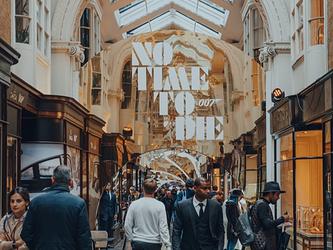How do brands help consumers chase their dreams?

The idiom ‘never stop chasing your dreams’ is ubiquitous, if somewhat clichéd. The phrase alludes to daring to take a chance in pursuing a goal, where, through persistence and endurance, one overcomes seemingly insurmountable odds. Naturally, it is human to dream, albeit not everyone is willing to chase their dreams.
Having conducted consumer research for more than two decades, what is clear to me is that consumers’ willingness to chase their dreams is at an all-time low. There are consequences, not least chasing our dreams imbues us with a sense of purpose, without which complacency and hopelessness can surface. This phenomenon is not limited to the individual but is manifest at a societal level. The American economist Tyler Cowen coined the phrase complacent class to explain how societal complacency creates a drag on social mobility, where consumers are reluctant to change jobs or move locations.
We can all attest to the economic and social impact of the Covid-19 pandemic, specifically the loss of income and social isolation fostered an upswell in anxiety and depression. The Russian invasion of Ukraine has had a significant impact on the global economy and food security. While it is acknowledged that inflationary pressures have peaked, food and drink prices continue to rise. The UK fiscal watchdog, the Office for Budget Responsibility, stated that while the UK economy will avoid recession, living standards are due to fall to levels not seen since the 1950s.
No discussion about chasing dreams would be replete without mentioning the climate crisis, with the world at a precipice, consumers need to embrace changes in the way they live their lives to avert irreversible damage to the planet. The impact of climate change is no longer something that happens in some far-flung part of the world; instead, we are seeing the impact locally. Further, the World Health Organization has concluded that climate change poses a threat to mental health and psychosocial wellbeing.
Against this backdrop, there is a deep sense of foreboding, where predictably the very notion of chasing dreams is inconceivable. How can brands connect with consumers in this changed reality? The vernacular of the day is for brands to empathise with the consumer’s plight. The results have been mixed, not least because brands are often seen as symptomatic of the problem.
Alternatively, the research industry could encourage brands to be more ‘fearless’ and seek to empower consumers to chase their dreams. This is not without its challenges; it is all too easy to come across as disingenuous. At least obliquely, the answer might lie in superhero movies, where consumers are invited into a dreamscape where hope and adversity are the accepted currency. For example, Marvel movies rely on humour to ensure that super-powered, costume-clad characters are relatable and human. A case in point is Thor, where the emphasis is less about Thor as a god, and more about how he nonchalantly deals with obstacles and challenges in his wake. Serious social themes are layered into the narrative. For example, Spider Man: Homecoming alights on the importance of neighbourhood responsibility and Black Panther addresses racial politics. Marvel movies tap into consumers’ deep-seated values, wants and desires, arguably the very essence of what constitutes our dreams.
It follows that brands that adopt positive and hopeful marketing will give consumers permission to chase their dreams. The 2015 Sports England – This Girl Can marketing campaign was designed to encourage woman and girls of all shapes, sizes and sporting abilities to embrace sport by showing them that there is no ‘right’ way to get active. Used carefully, humour can be a powerful instrument in the marketing tool book. With consumers increasingly looking to ‘identify’ with brands, humour helps to present a human side to the brand. It is no longer enough for a brand to make a profit; consumers are looking for brands with a social purpose and conscience. In principle, identifying – whether through humour or purpose – with a brand fosters a sense of belonging that is important for both mental and emotional wellbeing, without which chasing the dream becomes ever more distant.
There is a compelling case for empowering consumers to chase their dreams, which in turn, will create greater social mobility and facilitate engagement with brands. There are challenges ahead; it is all too easy to come across as insincere or even patronising. Naturally, a deeper understanding of consumers’ values, wants and desires will avoid these pitfalls to some extent. This will demand more immersive/ethnographic approaches, and while this might seem to go against the direction of travel – with artificial intelligence the zeitgeist of the moment – this should not be an impediment to progress.
Julian Adams is founder at De Novo Research.

We hope you enjoyed this article.
Research Live is published by MRS.
The Market Research Society (MRS) exists to promote and protect the research sector, showcasing how research delivers impact for businesses and government.
Members of MRS enjoy many benefits including tailoured policy guidance, discounts on training and conferences, and access to member-only content.
For example, there's an archive of winning case studies from over a decade of MRS Awards.
Find out more about the benefits of joining MRS here.













0 Comments